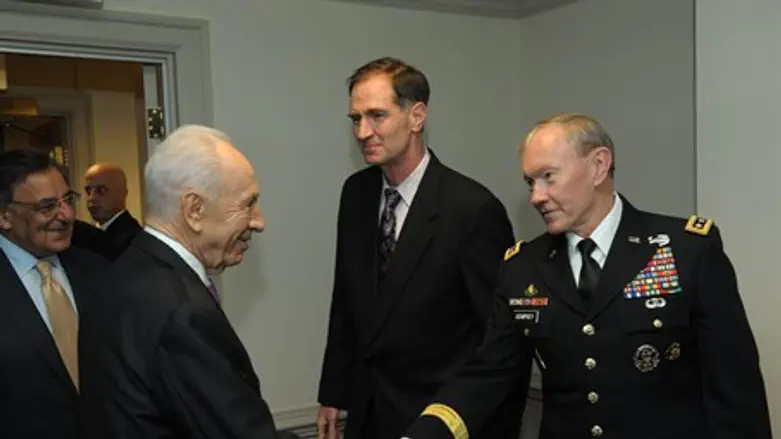
Imposing a no-fly zone over Syria would cost as much as $1 billion a month and put U.S. aircraft at risk of being shot down without necessarily toppling Bashar Al-Assad’s regime, the U.S. military’s top officer said, according to Bloomberg News.
Thousands of U.S. troops would be required on the ground if the U.S. wanted to establish buffer zones to protect targeted geographic areas or to control the proliferation of chemical weapons, Army General Martin Dempsey, chairman of the Joint Chiefs of Staff, said in a letter to the chairman of the Senate Armed Services Committee that was released Monday.
Underscoring his reluctance to take military action in Syria, Dempsey said U.S. intervention “could inadvertently empower extremists or unleash the very chemical weapons we seek to control,” without the emergence of a “viable opposition.”
Dempsey’s letter is the strongest public statement by a Pentagon leader setting out the dangers of direct involvement in Syria. The war has claimed more than 93,000 lives by United Nations estimates while threatening to destabilize neighboring Jordan and Lebanon and risking a broader regional conflict between Sunnis and Shiites.
Members of the Senate Armed Services panel who favor more aggressive military action pressed Dempsey at a hearing last week to disclose what advice he’s giving to President Barack Obama.
Dempsey said it would be “inappropriate for me to try to influence the decision” by making public his recommendations to the president when they’re under consideration.
While administration officials have said they are weighing all options short of putting U.S. troops on the ground in Syria, the U.S. has limited its support for rebel forces to non-lethal aid and a promise of small arms.
Senator John McCain, an Arizona Republican, said at the hearing that he would block Dempsey’s nomination for a second term heading the Joint Chiefs unless the general revealed his advice to Obama, reported Bloomberg. McCain has led calls in Congress to arm the rebels and establish a no-fly zone to protect the opposition from Assad’s air power.
Dempsey said training and advising the Syrian opposition would cost $500 million a year, while the cost of conducting stand-off strikes against Assad’s military “would be in the billions,” according to the report.
Dempsey’s comments reflect the views of commanders, who have been critical of proposals to intervene in Syria.
Retired Marine Corps General James Mattis, who was commander of U.S. Central Command from August 2010 until March, said a no-fly zone would have little effect in reducing civilian causalities because most deaths are from regime artillery, machine guns and sniper fire, not air strikes.
Angry Syrian refugees confronted U.S. Secretary of State John Kerry during his landmark visit to the Zaatari camp in Jordan last week.
The refugees demanded that Washington do more to end the war in Syria, and urged a no-fly zone to protect areas along the border and those held by rebel forces.

